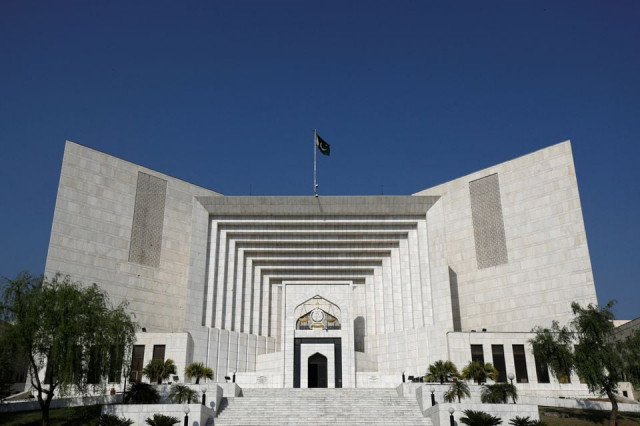Parliament cannot be left empty, observes SC
PTI chief’s counsel says current assembly ‘breached’ the trust of people

A top court judge has observed that parliament could not be kept empty except for any physical reason, noting that the members of National Assembly (MNAs) held the trust of people of their constituencies.
Supreme Court Judge Justice Syed Mansoor Ali Shah gave these remarks during the hearing of a PTI petition against the recent amendments to National Accountability Ordinance (NAO) 2000.
Earlier, PTI Chairman Imran Khan’s counsel Khawaja Haris while responding to Justice Shah’s queries said that the current assembly breached the trust of people and that the regime came to power through “corrupt means”.
He said sitting in the assembly would mean that the PTI had become a party to the “nefarious designs of the corrupt government”.
“In fact, doing so would be tantamount to a tacit admission of the legitimacy of the said (PDM) government of the blatantly self-serving, morally corrupt agenda, while agitating on the roads for dissolution of such an Assembly and the prompt notoriously anti-people actions taken by them, in that it would perpetuate their illegal seizure of elections is the only way for bringing an early end to this illegal regime,” the counsel said.
Chief Justice Umar Ata Bandial said that the matter was being argued for the first time and may have validity.
When Justice Shah asked about the status of PTI MNAs, the counsel replied that they had tendered their resignations but the National Assembly speaker was not accepting them.
“Even though he accepted a few MNAs resignation and by-elections have already been held in those constituencies,” lawyer Haris said.
Justice Ijazul Ahsan expressed wonder over the NA speaker’s “pick and choose” approach.
Justice Ahsan said that leaving the parliament and not participating in the parliamentary debate did not deprive the petitioner of the right to challenge the amendments in NAB law, adding that the court could take up any matter of public interest.
Haris maintained that leaving the parliament was purely a political decision. However, Justice Shah said that he was asking about the legal implications of leaving the assembly as the MNAs were the trustees of the people who had elected them.
Towards the end of the hearing, the chief justice said that these were political matters, adding that the court strongly felt that every institution including parliament should function properly.
However, the chief justice said, it was a matter of concern if the largest political party left the assembly.
Regarding the applicability of NAB law on armed forces, Haris urged the bench to leave the matter for parliament as it was a “very sensitive matter”. He said there was rationale behind the exclusion of serving military officers from NAB’s jurisdiction.
Thanks God! You have left something for parliament, Justice Shah remarked on a lighter note.
Haris again referred to the Asfand Yar Wali case judgment. However, he said that retired military officers could be held accountable under the NAB law.
Justice Shah wondered why the military officers were exempted from NAB jurisdiction when the premier, chief ministers and others did not enjoy immunity.
He asked whether such immunity was given to armed forces in other countries too. He questioned whether the court should wait till the retirement of a military officer if he was involved in corruption.
Justice Ahsan while agreeing with counsel Haris’ arguments said that military officers were exempted because of their nature of job.
After 28 hearings, Haris completed his arguments.
The hearing of the case was adjourned till second week of January.



















COMMENTS
Comments are moderated and generally will be posted if they are on-topic and not abusive.
For more information, please see our Comments FAQ